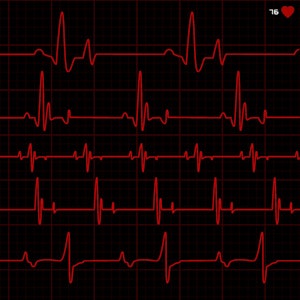Ever think about what your heart is doing while you sleep?
One would think that during sleep – a time when your body and mind rest and rejuvenate – your heart would be at rest, too. The heartrate slows to its lowest reading, which varies by individual, and probably stays there much of the night, right? Well, not exactly.
Researchers from Harvard Medical School have described the cardiovascular system during sleep as having “periods of calm interrupted by abrupt spikes in blood pressure and heart rate.”
An article published by the prestigious medical school reads: “Blood flow through the heart and brain varies widely during sleep, as do electrical activity in the heart, the elasticity of blood vessels, and the tendency of blood to clot. And all of this activity is just part of a normal night’s sleep.”
That interesting description got us wondering what happens to the heart when sleep is not “normal,” such as with insufficient or poor-quality sleep.
According to sleep researchers, most people need between six and nine hours of sleep each night, and less or more than that could have negative impact on cardiovascular health. The American Heart Association has said that sleep deprivation is linked to an increased risk of high blood pressure, which is one of the causes of heart disease.
Studies have shown that sleep-deprived people tend to have slower metabolism than those who get enough sleep, and that they are more likely to gain weight and have trouble losing weight. Not surprisingly, when people don’t get enough sleep, they have less energy, so they don’t feel motivated to participate in physical or even social activities.
And all those things can contribute to depression, which a panel of experts convened by the American Heart Association agreed should be added to the list of heart disease risk factors that include obesity, diabetes, hypertension and smoking. In a recent study from the University of Southern California Keck School of Medicine, researchers said depression could be a risk factor for atrial fibrillation, which is an irregular heart rhythm that’s linked to stroke and heart failure.
People with sleep apnea also have increased risk of heart disease. Sleep apnea is a condition where a person pauses breathing 5-30 times per hour during the course of a night’s sleep. In these episodes, the person awakens and gasps for air, which results in poor quality of sleep and is associated with high blood pressure, arrhythmia, stroke and heart failure.
While more men suffer from sleep apnea than women, the ladies are not without their sleep issues. During perimenopause and menopause, hormones that promote sleep decline, including estrogen, progesterone and, lastly but possibly most critical for sleep, melatonin. Other sleep disruptors during this life stage for women are mood swings, anxiety and night sweats. All of these contribute to chronic insomnia, which puts menopausal women at higher risk for cardiovascular disease.
To reduce many risk factors for heart disease, medical and sleep experts recommend a healthy diet, regular exercise, and a good bedtime routine that promotes sleep.


